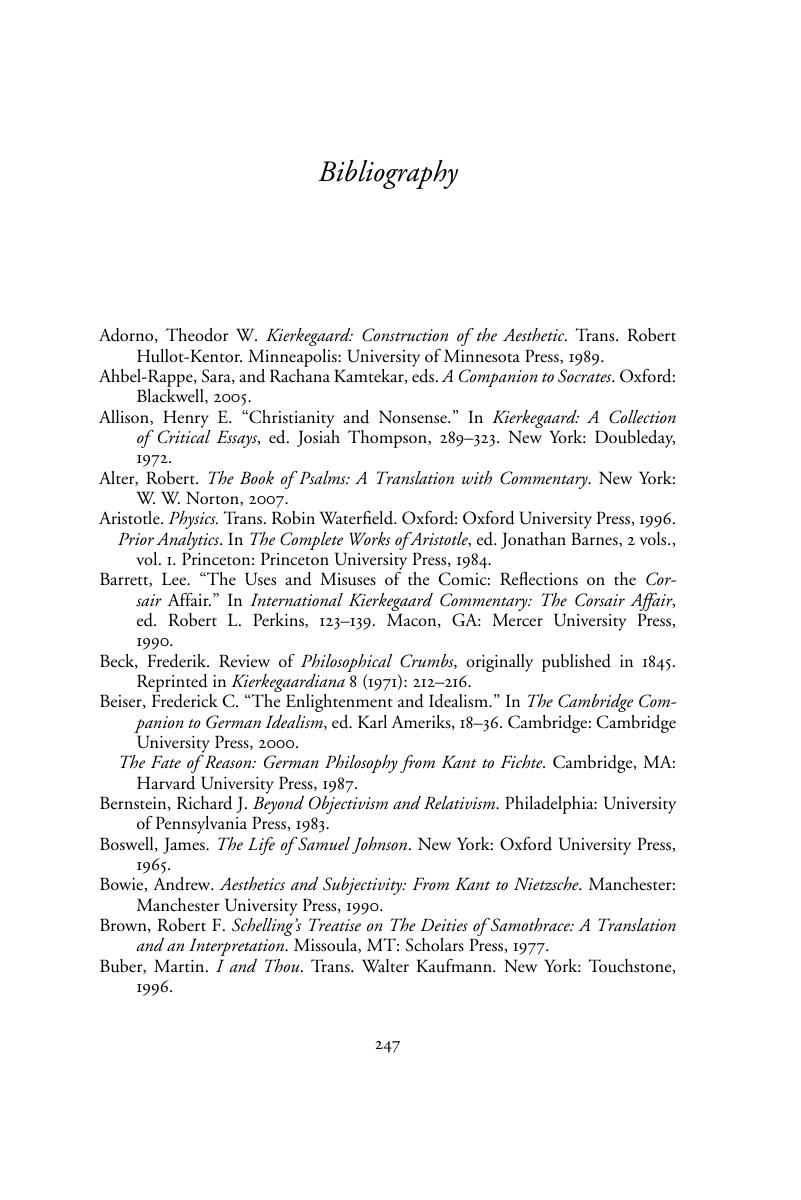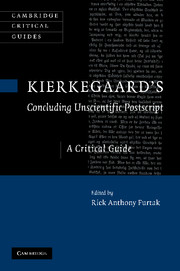Book contents
- Frontmatter
- Contents
- List of contributors
- Acknowledgments
- List of abbreviations
- Introduction
- 1 The “Socratic secret”: the postscript to the Philosophical Crumbs
- 2 Kierkegaard's Socratic pseudonym: A profile of Johannes Climacus
- 3 Johannes Climacus' revocation
- 4 From the garden of the dead: Climacus on interpersonal inwardness
- 5 The Kierkegaardian ideal of “essential knowing” and the scandal of modern philosophy
- 6 Lessing and Socrates in Kierkegaard's Postscript
- 7 Climacus on subjectivity and the system
- 8 Humor and irony in the Postscript
- 9 Climacus on the task of becoming a Christian
- 10 The epistemology of the Postscript
- 11 Faith and reason in Kierkegaard's Concluding Unscientific Postscript
- 12 Making Christianity difficult: The “existentialist theology” of Kierkegaard's Postscript
- Bibliography
- Index
- References
Bibliography
Published online by Cambridge University Press: 04 August 2010
- Frontmatter
- Contents
- List of contributors
- Acknowledgments
- List of abbreviations
- Introduction
- 1 The “Socratic secret”: the postscript to the Philosophical Crumbs
- 2 Kierkegaard's Socratic pseudonym: A profile of Johannes Climacus
- 3 Johannes Climacus' revocation
- 4 From the garden of the dead: Climacus on interpersonal inwardness
- 5 The Kierkegaardian ideal of “essential knowing” and the scandal of modern philosophy
- 6 Lessing and Socrates in Kierkegaard's Postscript
- 7 Climacus on subjectivity and the system
- 8 Humor and irony in the Postscript
- 9 Climacus on the task of becoming a Christian
- 10 The epistemology of the Postscript
- 11 Faith and reason in Kierkegaard's Concluding Unscientific Postscript
- 12 Making Christianity difficult: The “existentialist theology” of Kierkegaard's Postscript
- Bibliography
- Index
- References
Summary

- Type
- Chapter
- Information
- Kierkegaard's 'Concluding Unscientific Postscript'A Critical Guide, pp. 247 - 254Publisher: Cambridge University PressPrint publication year: 2010



